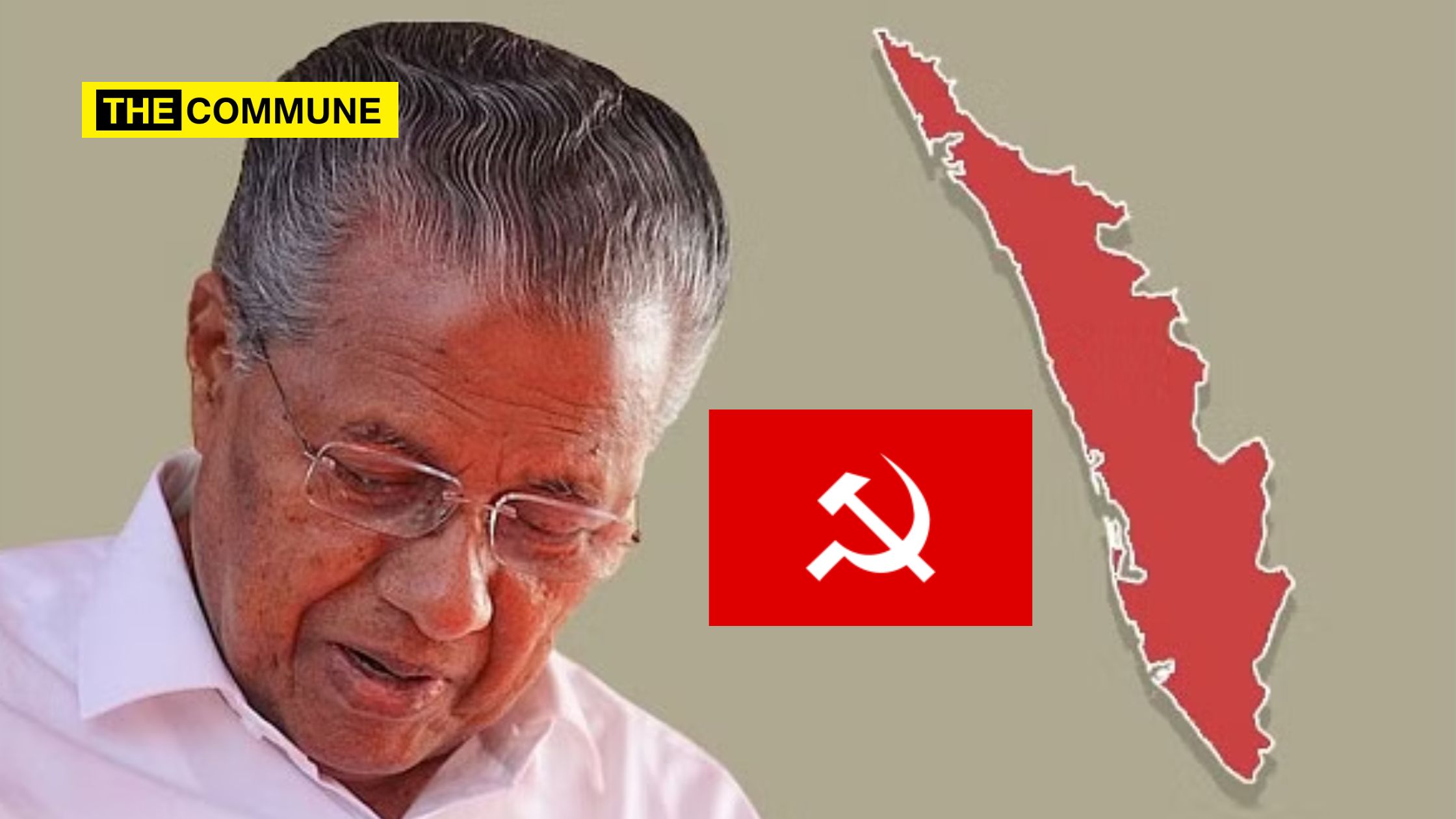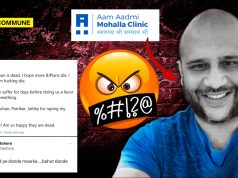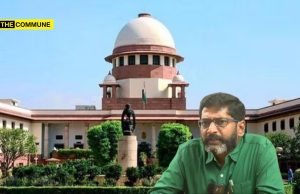
According to reports, the Kerala government is preparing to change the code of conduct for government employees in order to penalise personnel who criticise the administration in cyberspace. According to reports, Chief Secretary VP Joy has presented a paper to Chief Minister Pinarayi Vijayan detailing revisions to the standards and cyber legislation that will effectively subject government personnel to tight government monitoring. Following growing instances of criticism by government employees, government officials are updating the code of conduct for government employees. When the reforms take effect, the government would have the authority to punish government employees who speak out against the state. They could even face dismissal from service. This development remains one among many instances in which the Pinarayi government has shown its true intolerant nature. Considering this we will peruse the true nature of the Pinarayi government and understand why the communist model of Kerala reeks of hypocrisy.
Fascist communist Kerala model
The intolerant nature of the Pinarayi government is out for the public to see, it is stated that Pinarayi Vijayan can even be qualified to be addressed as ‘Mao of the South’ due to his intolerant administration and use of police machinery. Union Minister V Muraleedharan remarked on Sunday that there is “Gundaraj” in Kerala, referring to the action taken against a journalist in connection with the mark list dispute. “Absurd and pathetic strongly condemn the Pinarayi Vijayan government’s harsh treatment of the media for reporting on the Marks sheet fraud.”
What a shame!@SitaramYechury conviently sides with Ex- Twitter Boss & preach about Freedom of Expression
But remains a mum to the crushing of press-freedom by @CPIMKerala Govt in Kerala
My Two Cents – He must keep same tweet & atribute it to @pinarayivijayan in Kerala. https://t.co/IX8upKwAar
— V Muraleedharan / വി മുരളീധരൻ ( Modi Ka Parivar) (@VMBJP) June 14, 2023
It is undemocratic and an infringement on press freedom. It is a shame that self-proclaimed media leaders did this,” Muraleedharan tweeted. He went on to say, “The state is ruled by CM Pinarayi Vijayan and CPIM, Kerala’s Gundaraj.” SFI thugs may attack lecturers, falsify credentials, and get away with it. Shame!” Based on a complaint by student union leader PM Arsho, Kerala Police initiated a case against five people, including an Asianet News journalist and the principal of the government-run Maharaja’s College in Ernakulam. In a complaint filed by Students’ Federation of India (SFI) state secretary and Maharajas College student PM Arsho alleging conspiracy, Kerala Police named Maharajas College, Ernakulam former coordinator Vinod Kumar, college principal VS Joy, KSU state president Alotious Xavier, Fazil C A, and Asianet News reporter Akhila Nandakumar as defendants. The case was filed under sections 120-B, 465, 469, and 500 of the Indian Penal Code (IPC), as well as 120(o) of the Kerala Police (KP) Act 2011, for criminal conspiracy, forgery, and defamation. The dispute emerged after the college’s website displayed the results, which revealed PM Arsho was given a pass yet the grades looked to be zero. Arsho stated that he did not even register for this test and so did not take it. Initially, the principal indicated that Arsho had enrolled for the exam, but then stated that it was a technological fault on the side of the NIC and that many other pupils had the same problem. Arsho’s assertions were correct, and he did not enrol for the exam, he said. In the meantime, the Kerala Union of Working Journalists is objecting to the complaint filed against the reporter in the matter, claiming that the measure is undemocratic and an infringement on press freedom. Manoj K Das, the managing editor of Asianet News Network, stated that the case against the reporter is a flagrant infringement of press freedom and that they will fight it and continue to practise their kind of journalism. “The case against Akhila is a flagrant violation of press freedom.” It demonstrates a trend of attempting to stifle free media. For a long time, the Asianet News network has been targeted by government authorities. We will not be silent. We will fight back and continue to practise our kind of direct, bold, and persistent journalism’, Manoj K Das stated. The ‘Asianet episode’ is just another chapter in the lengthy saga of dictatorial behaviour by Kerala’s CM and the Pinarayi Vijayan government. In Kerala, media professionals regard Pinarayi Vijayan as a leader who dislikes, if not despises, the media. There has been little change in this attitude after the leader’s inauguration as chief minister. In 2016, instead of giving news conferences following Cabinet sessions, Vijayan stopped interacting with the media and began distributing press releases. When journalists went to cover a “meeting” at a hotel in Thiruvananthapuram in 2017, the chief minister exclaimed “kadakku purath” (Get out). The discussion with RSS officials was purportedly facilitated by Yoga Practitioner Sri M. The Chief Minister’s modification to the Kerala Police Act in 2020, intended at preventing cyberattacks against women, was interpreted as an attempt to limit media freedom. It intended to enact a new clause criminalising defamatory information, but it was withdrawn in response to resistance and civil society outcry. These events come on top of the previously existing restrictions on the press covering assembly operations. The episode plainly demonstrates that Kerala’s CM has frequently shown Maoist tactics in dealing with the media. The Vijayan administration is not getting favourable press coverage; back-to-back high-profile claims relating to the personal secretaries of the CM himself are making the rounds in journalistic circles, shaking the governing left’s confidence. In desperation, the CM has lashed out at the media; disagreement is the bedrock of a democratic society, and the CM, as a democratically elected leader, must embrace it.
By allowing his henchmen to catch the media by the throat, Pinarayi Vijayan has once again proved that he is a true Communist!
The Hypocrisy of the Communist Kerala Model
Above mentioned instances have been a few of many incidents in Kerala which came to the spotlight as a direct result of inaction or action by the communist government that is ruling the state. As the current administration enters its second year of a five-year mandate, it appears to be mired in a never-ending cycle of problems. The left government has courted controversy in everything from a disagreement with the governor to the nomination of party members to cabinet jobs. Despite being seen as a shining example of human growth and education, Kerala is being held back by total misgovernance and misunderstanding of crucial concerns. Even while preaching secularism and free speech, the communist dispensation openly brings in ordinances or circulars to choke free speech and even when they talk about development and employment, Kerala remains one of the worst states in the country in terms of employment and development. Kerala is a top achiever in education and human development, owing to its abundance of natural resources. However, the state’s prospects are being harmed by the governing dispensation’s continued disregard for requirements and wrong priorities. Around 3 million Keralites work abroad, making the economy heavily reliant on remittances from other countries. This is owing to the state’s lack of development. Agriculture provides just 12% of state GDP, while industry contributes 23% and services contribute 66%, according to a sector comparison. The thriving service industry is mostly driven by consumption rather than income creation. This is accurate when we consider that spirits sales account for a whopping 4.2% of Kerala’s budget income. The work situation in the state is similarly poor, which has fueled massive migration to other countries, with 12.5 percent of the labour force unemployed. Kerala is one of India’s worst achievers in terms of employment indexes.
But the ruling class remains oblivious to reality and continues to pile money into its coffers. For example, the government spent ₹34.79 crores on salaries and travel expenditures for ministers’ personal employees in 2019-20. A total amount of ₹7.13 crores was paid on pensions and gratuities for retiring employees. In contrast to 2013-14, spending on ministers’ personal staff salaries and travel costs increased by 25.30% in six years. The pay and other benefits of the CM’s personal workers increased by a stunning 190.61%. Pension costs have more than quadrupled, rising from ₹3.53 crore in 2013-14 to ₹7.13 crore in 2019-20. With long-term life expectancy and periodic pay and pension revisions, this load is expected to rise dramatically in the future years. The startling increase in these expenditures comes against the backdrop of the state’s poor financial status and growing debt. “According to Kerala’s Fiscal Responsibility Act of 2011, the sustainable debt level is estimated to be 23% of GSDP.” During 2019-20, Kerala spent 75.6% of borrowed funds on revenue spending and 20.13 percent on debt repayment. Only 3.85% of the borrowed funds were utilised for capital expenditure. Kerala, along with Punjab and Rajasthan, was designated as a very high debt ratio state’ in Crisil’s 2019 States of Growth report. These were the only states with debt-to-GDP ratios of more than 30%. An opinion can mislead and lie, but data remains true, and all relevant data sets point to the demise of the legendary ‘Kerala-Left Model.’ A state gripped by communal groups like the SDPI, PFI, and others, a state where economic possibilities are sparse, and a state where the governing regime displays absolute contempt for governance, has an uncertain future. However, the ‘left’ remains oblivious to these challenges. Brinda Karat, a Polit Bureau member of the CPI(M), previously stated that Kerala’s Left Democratic Front (LDF) administration is ‘a model for the party, and we are taking it to the rest of the country.’ The only bright spot in this is that fortunately for the rest of the country, the CPI(M) is unlikely to win power anyplace else in the country, leaving Kerala to suffer as the last stronghold of a dying obsolete ideology.
The nature in which the Pinarayi government administers the state makes us question whether Mr. Pinarayi is looking to make Kerala a true communist state in the model of Cuba or North Korea. Riddled in corruption and intolerance the communist Kerala model is pushing the state to the brink of stagnation; both economically and socially. The voters must realize this reality when the next election comes around the corner because every vote against the Vijayan government will be a vote for democracy.
(Anand Krishna is a lawyer from Kerala and a columnist)
Click here to subscribe to The Commune on Telegram and get the best stories of the day delivered to you personally.




